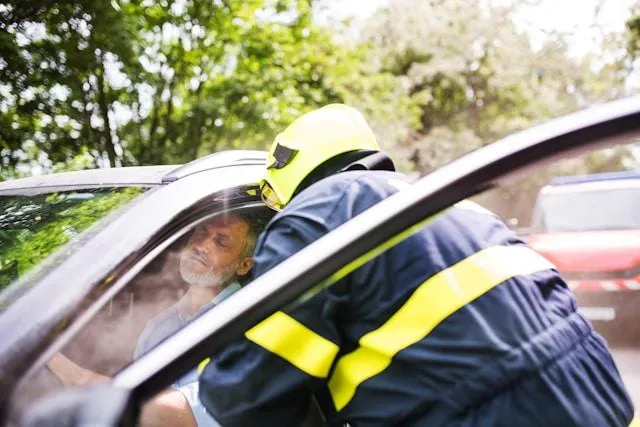
What to Do After a Car Accident Injury in San Diego
Car accidents can be frightening and overwhelming, leaving you uncertain about what to tackle first. It's important to know exactly what steps to take after a car accident injury to protect your health and legal rights. In San Diego, understanding these steps can make a significant difference in the aftermath of a collision. Whether you're dealing with minor scrapes or something more serious, having a clear plan ensures you're equipped to handle the situation effectively.
Knowing what to do immediately following a car accident helps in protecting your well-being and plays a crucial role legally. From collecting information to seeking medical attention, every step matters. The chaos that follows a crash can make it easy to miss important details, but by staying informed and prepared, you can navigate through this challenging experience with confidence.
Immediate Steps to Take After a Car Accident
When you're involved in a car accident, it's important to act quickly and methodically to safeguard yourself and any passengers. Here are the immediate steps you should take to manage the situation:
1. Ensure Safety and Check for Injuries: First and foremost, assess your own condition and that of any passengers. If possible, move to a safe location off the roadway to prevent further accidents or injuries.
2. Contact Emergency Services and Police: Dial 911 to report the accident and request medical assistance if needed. Having the police on the scene is essential for creating an official accident report, which can be crucial for insurance purposes and legal proceedings.
3. Exchange Information with Other Parties Involved: Collect names, phone numbers, and insurance information from all drivers involved. This exchange is important for handling future claims.
4. Document the Accident Scene with Photos and Notes: Use your phone to capture pictures of the vehicles, road conditions, damage, and any injuries. Write down any notable details about the accident, including the time, weather conditions, and any relevant statements from witnesses.
5. Collect Contact Information of Witnesses: If there are any bystanders who witnessed the accident, politely ask for their contact details. Their accounts could provide valuable information later on.
By taking these steps, you lay the groundwork for navigating the post-accident process efficiently. Quick and thoughtful actions can keep you calm and prepared, easing the transition through the stages that follow.
Seeking Medical Attention
After ensuring initial safety, your health should be the top priority. Even if you feel fine, seeking medical evaluation is essential, as some injuries aren't immediately apparent. For instance, symptoms from head injuries or internal trauma might take hours or even days to surface. By promptly checking in with a healthcare professional, you ensure any hidden injuries are identified and treated effectively.
It's wise to keep thorough records of all medical visits and treatments related to the accident. This documentation serves multiple purposes: it aids doctors in tracking your recovery and provides detailed accounts for any legal or insurance claims. Even minor injuries left unchecked can lead to complications, so attending to them quickly helps secure your long-term health and well-being.
Reporting the Accident
Taking the step to inform your insurance company about the accident is necessary. You should do this shortly after the incident to ensure that your claim process starts without delay. When you contact your insurer, providing an accurate and detailed account of the accident is one of the key things you can contribute. Here are some handy tips to keep in mind while reporting:
- Stay Honest: Be clear and truthful about how the accident occurred. Don’t exaggerate or withhold any details, as this can impact the validity of your claim.
- Use Your Notes: Refer to the notes and photos you took at the scene. They can help you recall specifics that might be essential for your report.
- Consult Your Lawyer: Before making any official statements or filings, it can be beneficial to discuss the situation with a lawyer. This helps ensure you’re covered legally and don’t unintentionally say something that might complicate your claim.
Legal Considerations
Engaging a personal injury lawyer in San Diego means getting professional advice tailored to your unique circumstances. A knowledgeable lawyer helps in understanding your rights and options. They can manage the complex paperwork and negotiations needed for a claim, freeing you from these stressful tasks.
A lawyer also works to get the compensation you need for medical bills, repairs, and more, which can be a complicated and long process on your own. Having someone on your side with experience in these matters means you're more likely to receive what you deserve. They will advocate on your behalf, knowing what angles to pursue and how to handle the insurance companies.
Taking the First Step Towards Recovery
It’s vital to follow through with any medical and legal advice you receive. Your recovery journey requires patience and dedication to both your physical health and any legal steps still ahead. Proper adherence to medical advice ensures that you’re healing correctly, while attention to legal guidance prevents any missteps in your claims process.
Professional support, be it from healthcare workers or legal advisors, aids in a smoother recovery. These experts can help guide you through the aftereffects of a car accident, providing the care and clarity needed to move forward. Having experienced individuals by your side not only supports your physical and legal recovery but also brings peace of mind. As part of this support, consider reaching out to professional services when necessary to assist with your individual case needs.
If you’re dealing with the aftermath of a car accident and need legal guidance, Robert Ryan Law is here to support you every step of the way. Working with a trusted personal injury lawyer in San Diego can make a real difference when it comes to protecting your rights and pursuing fair compensation.
